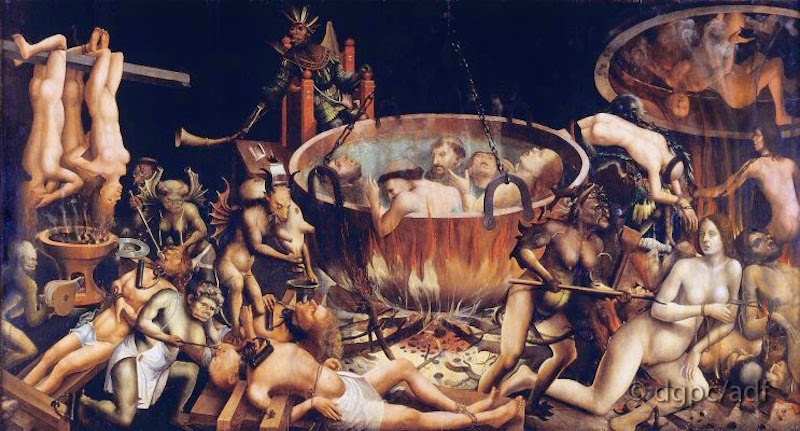On the previous Wednesday’s “Thoughts on Art”, we were left wondering with the controversial “Erased Willem de Kooning Drawing”, which provoked some intriguing reactions by DailyArt users who wrote us back. Yesterday I was visiting a museum and this piece captured my attention: not because of the infernal theme (although it does make a strong impression), but by what was implied in the painting - yes, can you spot it? There are Franciscans boiling in hell! And when I came closer, thinking, “Who would dare to make such a statement during the religious fervour of sixteenth century’s Portugal?” I noticed something interesting: it was created by an unknown artist! Then, a statement from one of us (DailyArt users, who had written back about last week’s piece) crossed my mind. He stated that many contemporary artists do some pointless pieces just to engage their success and draw attention to their name. I understand this position, I’ve felt hoaxed before while visiting some contemporary galleries… And somehow this painting seemed to represent the precise opposite of it – it reveals the message, in lieu of sacrificing the name.
Oscar Wilde once said, “Man is least himself when he talks in his own person. Give him a mask, and he will tell you the truth.” In the painting, every soul that falls from the pit (upper right corner) suffers a torment correspondent to the mortal sin it has committed: in the boiling water suffer the envious; upside down, with burning hair, pride is being punished; avarice, where a man is forced to swallow coins; greediness, where a man is forced to drink blood from a pig; anger, where the bald man is being tortured; and lust, in the lower right corner, where chained couples are tortured by a demon.
- Artur Deus Dionisio


 Unknown Artist
Unknown Artist